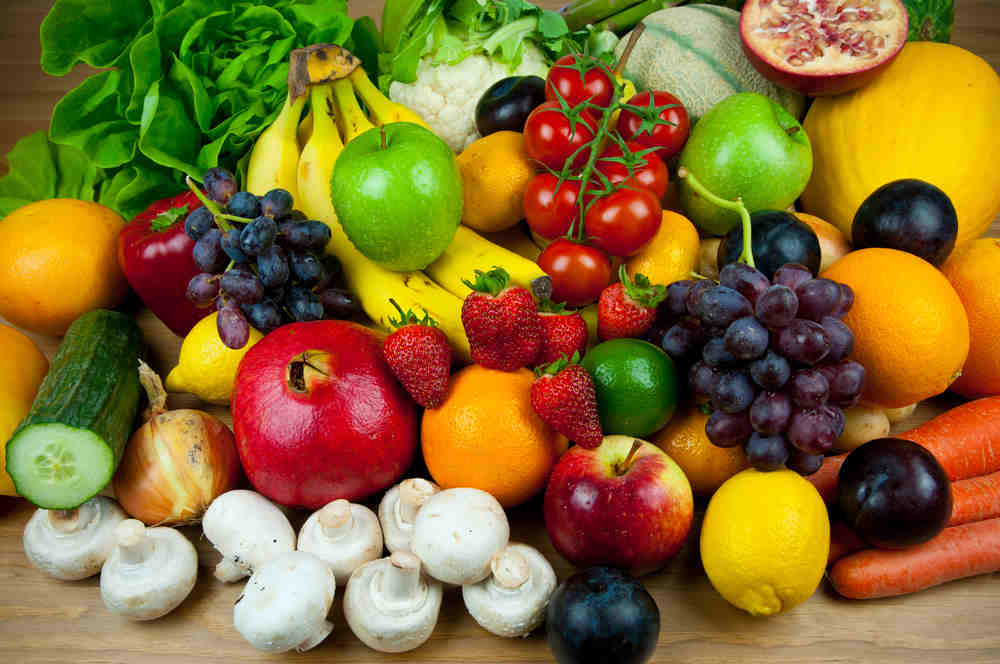Last Updated on January 22, 2024
Antioxidants help protect the body from free radical damage. Free radicals can be visualized by cutting an apple open and sitting it on the table. After a couple minutes, the apple starts to turn brown—this is due to free radical damage. Now in order to protect that apple from turning brown, it is best to put some lemon juice over the apple after it is cut open.
The antioxidants from the lemon juice protect the apple from being attacked. With this being said, free radical damage can also be seen on poles or railings when they rust. Rust is due to the oxidation of the metal. Think of antioxidants as Rust-Oleum. The more coats of Rust-Oleum that you put on the pole, the longer the pole is protected. The same goes for the human body. The more antioxidants that are taken in, the more protected the body is against free radical damage.
Free radical damage can do numerous things to cells—this can range from mutating the cell, damaging the cell, and even killing the cell. If any one of these things happen, it can negatively affect an individuals health. This article will outline everything you need to know about antioxidants.
What are antioxidants?
Antioxidants are chemicals that reduce the rate of oxidation to cells and biomolecules. Oxidation is where chemical reactions transfer electrons from a substance to an oxidizing agent which results in changing the original chemical to something different. Free radicals are the main culprits in damaging cells. Antioxidant-rich foods and supplements help prevent free radical damage.
A large amount of antioxidants are found in dietary supplements used to help prevent cancer and heart disease, not to mention to help with everyday overall health. A good diet can yield thousands of different antioxidants whereas dietary supplements only have specific antioxidants in their products.
What is the purpose of antioxidants?
Antioxidants may be the next best thing to sliced bread. They help boost the immune system, which prevents cellular damage and lowers the risk of cardiovascular disease. There is a lot of research being done on antioxidants and the research that is out there today all looks good. Antioxidants may slow down, prevent, and even reverse certain diseases that come about due to cells that have been damaged. This all sounds fine and dandy, but the big kicker is that research is actually showing that antioxidants could be a natural way to slow down the aging process. No more need for “the fountain of youth”—just make sure you are getting supple amounts of antioxidants in your diet each day.
Did I hear correctly that exercise causes more free radical damage?
Well don’t let this crush your hopes but to an extent this is correct. However, the positives greatly outweigh the negatives. When exercising, oxygen consumption is increased (at least it should be if you are working hard enough). This increase in oxygen causes an increase in free radicals, which damage cells and cause muscular fatigue. The body uses antioxidants that are found in the body to help reduce the free radical damage.
The good side of this story is that evidence shows that exercising strengthens the body’s antioxidant defense system. It is because of this finding that diseases that are associated with oxidative stress are found at a lower incidence rate with those individuals who exercise.
What are some specific antioxidants?
Vitamin E, beta-carotene, vitamin A, and coenzyme Q10 are all antioxidants that protect lipid membranes while vitamin C, glutathione peroxidase, superoxide dismutase, and catalase protect the body from free radicals that are found in water-based cytoplasm.
A great place to find antioxidants is in our diet. Vegetables, fruits, grains, legumes, and nuts are all great sources of antioxidants. Fruits such as blueberries, rasberries, and blackberries, all have an abundant amount of antioxidants in them. Spinach and peppers are both great vegetable sources of antioxidants.
Some good sources of grains that have a good amount of antioxidants are barley, maize, and millet. A place that not many people would think there would be a nice supply of antioxidants would be in cocoa products such as dark and milk chocolate. For those who wish to drink their antioxidants, coffee, red wines, and teas such as black, green, and white are great for battling free radicals. Those looking for a healthy snack can also find antioxidants in almonds, pecans, and pistacios.
Some other foods that contain antioxidants:
Veggies:
Onions
Ginger
Garlic
Chives
Tomatoes
Carrots
Kale
Spinach
Green leafy vegetables
Broccoli
Cauliflower
Cabbage
Brussels sprouts
Peas
Fruit:
Grapes
Blueberries
Strawberries
Cherries
Apples
Grapefruit
Cranberries
Raspberries
Blackberries
Pomegranate
Orange
Plum
Pineapple
Lemon
Dates
Kiwi
Clementine
Watermelon
Apricots
Prunes
Nuts:
Walnuts
Sunflower seeds
Legumes:
Soybeans
Broad beans
Pinto beans
Ground nut







